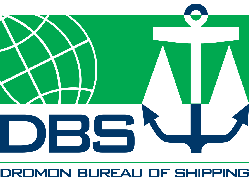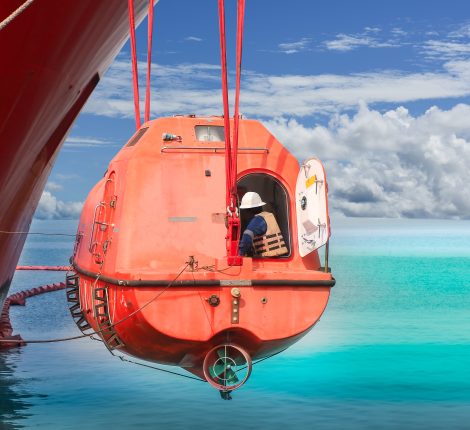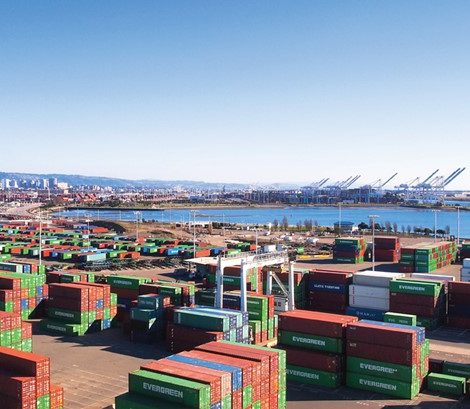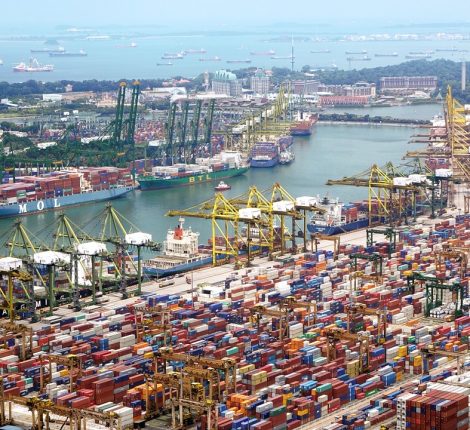- August 16, 2023
- 2023 , Circulars
- Comments : 0
BWM Convention 2004, Panama Policy
Notice to: Ship Owners / Managers/ Operators / Surveyors / Auditors /DPAs / Masters
C23040 | 14 August 2023
This circular is issued to advise that Panama Maritime Authority (PMA) has issued an updated circular. No. MMC-345 Ballast Water Management Convention 2004, Panama Policy, informing that the Republic of Panama has submitted the accession of the Ballast Water Management Convention (BWMC) 2004 to the IMO, including a declaration in accordance with the recommendation contained in Resolution A.1088(28), now superseded by Resolution MEPC.287(71); and that the Convention entered into force on 8 September 2017.
The Circular provides guidance and instructions to ensure compliance with the BWMC and the complementary IMO Resolutions and Circulars. The most important PMA implementation requirements on BWM Convention in addition to or in order to enhance those adopted by IMO are as follows:
The Ballast Water Record Book (BWRB):
The Circular states the BWRB shall at least contain the information specified in Appendix II (Form of Ballast Water Record Book) of the BWMC and may be:
- an electronic record system, or
- integrated into another record book or system
The Circular notes that the Marine Environmental Committee (MEPC) approved draft amendments to the Form of Ballast Water Record Book, with a view to adoption at MEPC 80 in 2023 and entry into force in 2024.
Therefore, considering the BWM Convention requirements and the conclusions made in the report related to the BWM Convention experience-building phase, that the most frequently reported deficiencies by port States and port State control MOUs were related to the entries in the BWRB, the Administration recommends all Panama flagged vessels take note of the draft amendments and prepare to implement them.
MMC-345 includes a list of different scenarios as guidance for recording entries in the BWRB. These include:
Ballast water taken onboard:
- In Port without BWMS (untreated)
- At sea without BWMS (untreated)
Ballast Water circulated or treated for Ballast Water Management purposes:
- Flow through method (untreated water)
- In port or at sea with BWMS (treated water)
Ballast Water discharged in port or at sea with or without BWMS:
- Sequential method (empty-refill, untreated water)
Ballast water discharged to a reception facility:
- Taken from a reception facility
Accidental or other exceptional uptake or discharge of Ballast Water:
- Exceptional uptake of Ballast water in cargo tanks of tankers
Additional operational procedure and general remarks:
- Ballast water exchange in accordance with Regulation B-4.1, when D1 is not possible due to depth or nearest land restrictions
- Ballast water exchange in accordance with Regulation B-4.1 when D1 is not possible due to threat to the safety or stability of the ship
- Removal and disposal of sediment from ballast tanks at sea
- Bypass due to failure of BWMS
The International Ballast Water Management Certificate (IBMWC):
The Circular notes that contingency measures and other ballast water management methods used in addition to D-2 will only be reflected in the ship’s Ballast Water Management Plan (BWMP). Therefore, even if the ship is also using other ballast water management methods as contingency measures, ships fitted with a BWMS will be certified in accordance with the D-2 standard as the principal ballast water management method employed on the ship.
Certificates already issued will be updated at the next survey endorsement reported to the Administration to align the IBWMC to the unified interpretations, and to ensure compliance with amendment to Appendix I – Form of the International Ballast Water Management Certificate (Resolution MEPC.325(75) adopted through Resolution No.107-OMI-247- DGMM dated 14 December 2021).
The International Ballast Water Management Certificate (IBWMC) does not apply to:
- Ships not designed or constructed to carry ballast water, and
- Permanent ballast water, not subject to discharge in sealed tanks on ships.
Ballast Water Management Systems:
The Circular notes that regarding the technical requirements a BWMS must meet to obtain type approval, “installed” means the contractual date of delivery of the system to the ship. In the absence of such a date, “installed” means the actual date of delivery of the system to the ship (Ref. Res.MEPC.300(72).
The Panamanian Authority will accept ballast water management systems type-approved by other Administrations, provided approval was granted in accordance with the Code or Guidelines on the type approval process as follows:
For systems installed prior to 28th October 2020:
- Resolution MEPC.125 (53) dated 22 July 2005 revoked by Res. MEPC.174 (58) dated 10 October 2008, with effective date 8 September 2017
For systems installed on ships on or after 28 October 2020, with approvals until 12 October 2019:
- Resolution MEPC.279 (70) “2016 Guidelines for approval of Ballast Water Management Systems (G8)” dated 28 October 2016
For systems installed on ships on or after 28 October 2020, with approvals on or after 13 October 2019:
- Resolution MEPC.300 (72) “Code for approval of Ballast Water Management Systems (BWMS Code) dated 13 April 2018, upon the entry into force of the associated amendments to the BWM Convention.
Instructions to ROs:
The Circular instructs delegated RO’s to verify:
- At the initial survey before the ship is put in service or before the Certificate required under regulation E-2 or E-3 is issued for the first time: that a commissioning test has been conducted to validate the installation of any ballast water management system by demonstrating that its mechanical, physical, chemical and biological processes are working properly, taking into account the 2020 Guidance for the commissioning testing of ballast water management systems (BWM.2/Circ.70/Rev.1), as may be amended.
- Where the indicative analysis testing during commissioning, shows non-complying results, that a detailed analysis has been conducted, using as reference the Guideline content in BWM.2-Circ.42-Rev.2).
- That Laboratories, where used for detailed analysis, have been accepted or approved by the ROs as per the requirements in the Code for the Recognized Organizations.
Commissioning test should not apply to ships that already had a BWMS installed and certified for D-2 standard; unless there has been an upgrade or change to a major component or newly installed BWMS. In these cases, an additional survey is required, this survey shall confirm that a commissioning test has been conducted to validate the installation of the system by demonstrating that its mechanical, physical, chemical and biological processes are working properly, considering the 2020 Guidance for the commissioning testing of ballast water management systems (BWM.2/Circ.70/Rev.1), as may be amended. (Refer to BWM.2/Circ.66/Rev.4 14 February 2023)
Where it is not possible to conduct sampling analysis for indicative analysis test during the ship’s commissioning test (e.g. salinity of ambient water is outside the System Design Limitations of the BWMS, or lack of equipment for indicative analysis required), the Administration is to be informed and the RO responsible for the IBWMC surveys to authorize the issuance a Conditional Certificate (refer to MMC.156).
Overdue Annual / Intermediate Surveys and Revalidation of IBWMC:
Where it is necessary to re-issue the certificate due to a ship’s name change, an application for a new Certificate must be made through E-Segumar’s website. The new certificate will be issued with the same validity as the previous full-term IBWMC.
If an annual survey is completed before the period specified in the regulations, then the anniversary date on the certificate is to be amended to not more than three months later than the date on which the survey was completed. The Certificate expiry date may remain unchanged provided one or more annual surveys, as appropriate, are carried out, so that the maximum intervals between the surveys prescribed by the regulations are not exceeded.
The updated status of the Full-term IBWMC must be included, in the “Ship Status Report” prepared by the RO.
The Administration is to be notified:
- as soon as BWMS malfunctions not affecting the operation (therefore not leading to a conditional certificate) occur, and
- of the time taken to return the BWMS to its full normal operation
Malfunctions leading to a Conditional Certificate may affect the endorsement period. Where the Conditional Certificate validity coincides with the closing of the window for the applicable endorsement, then a revalidation is to be conducted not later than the expiry date of the conditional certificate, to restore the full-term validity.
Act now
Ship Owners, Managers, Operators, Surveyors, Auditors, DPAs, and vessel Masters should note the contents of this PMA circular, and be guided accordingly.





